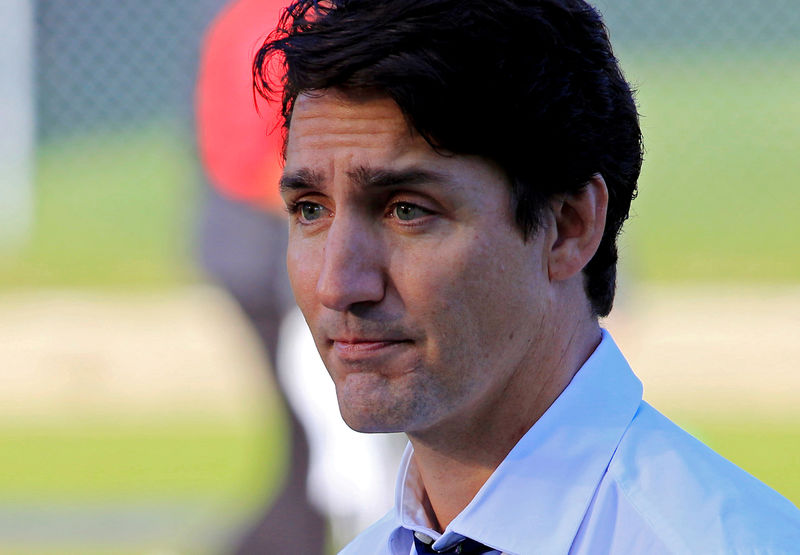By Steve Scherer and David Ljunggren
OTTAWA (Reuters) - Canadian Prime Minister Justin Trudeau on Wednesday faced the first obstacles in launching his new minority government when a small opposition party demanded quick action on two priorities in exchange for its support on progressive policies.
New Democratic Party leader Jagmeet Singh challenged Trudeau to act immediately on universal coverage for prescription drugs, and insisted the prime minister drop an appeal against a court decision ordering compensation for indigenous children harmed by federal welfare policies.
"Our first step is to put out our challenge and we are going to build public pressure on this," Singh told reporters after meeting with his party's lawmakers.
"A lot of Canadians wanted to see this government work with other parties. They need to work with other parties, and we are putting out some clear conditions," he said.
Trudeau emerged from last week's election with more seats than any other party, but 13 short of being able to govern alone. The left-leaning NDP shares much of the Liberals' agenda and holds 24 seats in the 338-member House of Commons.
The prime minister's office did not immediately respond to a request for comment. Singh said he spoke to Trudeau only once right after the Oct. 21 election and had not talked to him since.
Asked whether the prime minister should reach out to him, Singh replied: "I think so."
During the campaign, Trudeau also pledged to create a national prescription drug plan if re-elected, but he provided few details, saying he would work with the provinces and northern territories to implement the changes.
Singh said delivering a universal prescription drug plan was a dealbreaker for the NDP but added that fighting climate change was an issue on which the parties could work together.
Regarding Singh's demand that the government drop an appeal to a human rights tribunal's decision to compensate indigenous children for past wrongs, Trudeau has said he does not oppose the idea of compensation but that more time is needed for consultation.
"We know that if Mr. Trudeau wants to put in place anything national that's progressive, he's going to need our help," Singh said.
Universal drug coverage has been proposed before, but the rise of high-cost drugs has given the idea new urgency, and a single federal buyer could wield greater negotiating power against drugmakers.

To deliver such a plan, the federal government would need to strike a deal with provincial governments, a process that could drag on for years because many are led by rival parties.